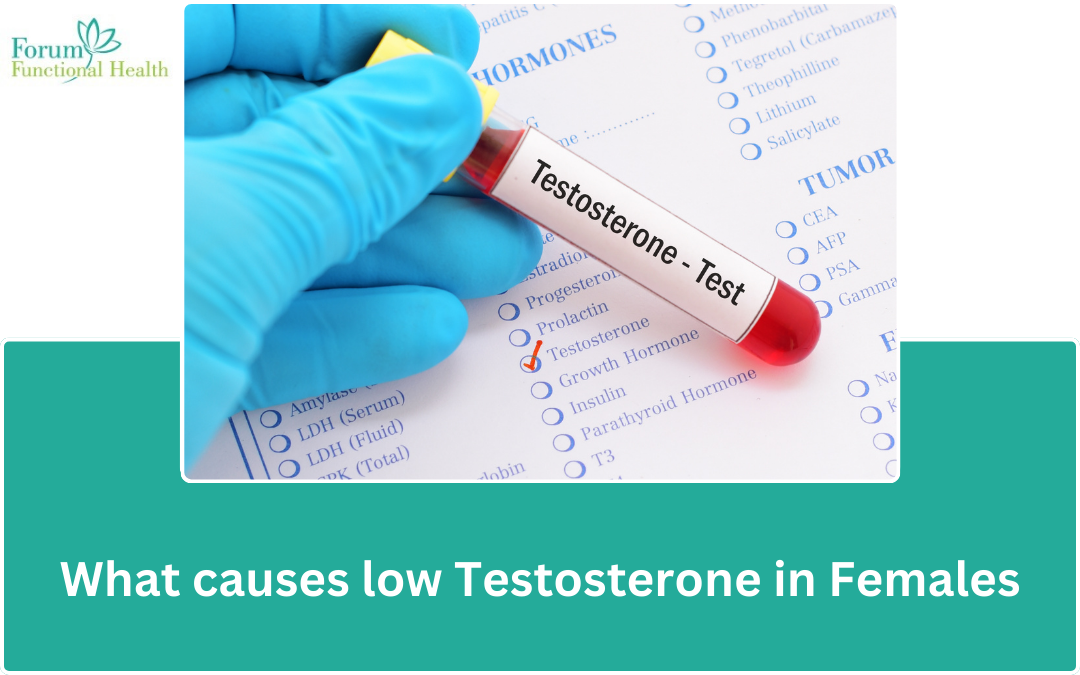
by Forum Functional Health Center | May 3, 2024 | Children with Hyperactivity & ADHD
Hyperactivity in children can present unique challenges for parents, educators, and healthcare providers alike. Understanding the signs, causes, and effective treatment options is crucial for supporting children with hyperactivity. In McKinney, Texas, the Forum Functional Health Center best Functional Health Center in McKinney Texas, offers comprehensive care tailored to meet the needs of hyperactive children and their families.
Supporting Your Child with Hyperactivity
Supporting your child with hyperactivity requires patience, understanding, and a willingness to adapt. Here are some strategies to help:
- Create a Structured Environment: Establish a consistent daily routine to help your child feel secure.
- Encourage Physical Activity: Regular exercise can help manage hyperactivity.
- Provide Positive Reinforcement: Recognize and reward your child’s efforts to manage their behavior.
- Seek Professional Guidance: Don’t hesitate to consult with professionals at the Forum Functional Health Center for personalized advice.
Understanding Hyperactivity
Hyperactivity is characterized by excessive activity, impulsivity, and difficulty maintaining attention. While it’s normal for children to have high energy levels, hyperactivity goes beyond typical behavior and can significantly impact daily functioning. Common signs of hyperactivity include restlessness, fidgeting, interrupting others, and difficulty staying focused.
Causes of Hyperactivity
There is no single cause of hyperactivity, but a combination of genetic, environmental, and neurological factors may contribute to its development. Genetics play a significant role, with hyperactivity often running in families. Additionally, factors such as prenatal exposure to toxins, premature birth, and early childhood trauma can increase the risk of developing hyperactivity.
- Difficulty sitting still
- Excessive talking
- Difficulty waiting their turn
- Difficulty playing or engaging in leisure activities quietly
- Easily distracted
- Often fidgets or squirms
Hyperactivity Treatment in McKinney, Texas
For parents in McKinney, Texas, seeking treatment for their hyperactive child, the Forum Functional Health Center stands out as a leading provider of comprehensive care. you can contact for Hyperactivity Treatment in McKinney, Texas
Forum Functional Health Center: Your Partner in Hyperactivity Treatment
The Forum Functional Health Center is dedicated to providing personalized care for children with hyperactivity. Their team of experienced professionals uses a holistic approach to address the root causes of hyperactivity, ensuring a supportive environment for your child to grow and thrive.
Services Offered
- Behavioral Therapy: Techniques to help manage hyperactivity and improve focus.
- Medication Management: Guidance on appropriate medications to manage symptoms.
- Educational Support: Assistance in understanding and managing hyperactivity in the classroom.
- Family Therapy: Strategies to support the entire family in managing hyperactivity.

by Forum Functional Health Center | May 1, 2024 | Fatigue
Have you ever experienced a moment where you suddenly feel weak for no apparent reason? It’s a perplexing sensation, leaving you wondering what could be causing it and how to regain your energy. This phenomenon, often referred to as sudden weakness or fatigue, can stem from various factors, ranging from lifestyle choices to underlying health conditions. In this blog post, we’ll delve into the potential causes of sudden weakness and explore effective treatment options, including those available at the Forum Functional Health Center in McKinney, TX.
What Causes Sudden Weakness?
- Dehydration: One of the most common reasons for sudden weakness is dehydration. Even mild dehydration can lead to fatigue and lethargy as it affects the body’s ability to transport nutrients and oxygen to cells effectively.
- Lack of Sleep: Sleep plays a crucial role in maintaining overall health and energy levels. Chronic sleep deprivation or poor sleep quality can leave you feeling weak and exhausted during the day.
- Nutritional Deficiencies: Your body needs a balanced diet to function optimally. Deficiencies in essential nutrients such as iron, vitamin D, vitamin B12, and magnesium can contribute to feelings of weakness and fatigue.
- Stress and Anxiety: Mental health plays a significant role in physical well-being. Chronic stress and anxiety can drain your energy levels and leave you feeling weak and depleted.
- Underlying Health Conditions: Sudden weakness can also be a symptom of underlying health issues such as thyroid disorders, diabetes, heart disease, anemia, or chronic fatigue syndrome. It’s essential to consult with a healthcare professional to rule out any serious medical conditions.
Treatment Options for Sudden Weakness
- Hydration: Drinking an adequate amount of water throughout the day is essential for combating dehydration and maintaining optimal energy levels. Aim for at least eight glasses of water per day, more if you’re engaging in strenuous physical activity or experiencing hot weather.
- Sleep Hygiene: Establishing healthy sleep habits can help improve the quality and duration of your sleep. Create a relaxing bedtime routine, avoid screens before bed, and ensure your sleep environment is conducive to rest.
- Nutritional Supplements: If you suspect a nutritional deficiency, consider incorporating supplements into your diet under the guidance of a healthcare professional. Iron, vitamin D, vitamin B12, and magnesium supplements can help address deficiencies and boost energy levels.
- Stress Management: Implementing stress-reduction techniques such as mindfulness, meditation, yoga, or deep breathing exercises can help alleviate feelings of stress and anxiety, thereby improving energy levels.
- Medical Evaluation: If your sudden weakness persists or is accompanied by other concerning symptoms, it’s crucial to seek medical attention. A healthcare provider can conduct a thorough evaluation, including blood tests and other diagnostic procedures, to identify any underlying health conditions.
Forum Functional Health Center in McKinney, TX
If you’re experiencing persistent weakness or fatigue and are seeking comprehensive healthcare solutions, consider visiting the Forum Functional Health Center in McKinney, TX. At Forum Functional Health, we take a holistic approach to healthcare, addressing the root causes of your symptoms and providing personalized treatment plans tailored to your individual needs.
Our team of experienced healthcare professionals, including doctors, nutritionists, and wellness coaches, will work closely with you to identify any underlying health issues contributing to your weakness and fatigue. Through advanced diagnostic testing and integrative treatment modalities, we aim to restore your energy levels and improve your overall quality of life.
Whether you’re struggling with chronic fatigue, nutritional imbalances, or stress-related issues, the Forum Functional Health Center is here to support you on your journey to optimal health and vitality.
Don’t let sudden weakness hold you back from living your best life. Take proactive steps towards addressing the root causes of your symptoms and reclaim your energy and vitality today.
If you’re in McKinney, TX, and seeking fatigue treatment, contact the Forum Functional Health Center to schedule a consultation and start your journey towards renewed health and wellness.
In conclusion, sudden weakness can be a concerning and disruptive experience, but it’s essential to recognize that it often stems from manageable factors such as dehydration, lack of sleep, nutritional deficiencies, stress, or underlying health conditions. By addressing these factors through lifestyle modifications, nutritional support, stress management, and medical intervention when necessary, you can overcome sudden weakness and regain your energy and vitality.
Remember, your health is your greatest asset, and investing in it pays dividends in every aspect of your life. Take the first step towards a healthier, more energized future today.
Also Read:- Understanding ADHD in Children: A Comprehensive Guide to Symptoms, Causes, and Treatment

by Forum Functional Health Center | Apr 29, 2024 | Menopause & Perimenopause
Life throws a lot at us, and for women, that often includes a period of transition called Premenopause. It’s the time leading up to menopause, when your body starts preparing to say goodbye to your fertile years. This transition can come with a whole new set of questions and, let’s be honest, sometimes anxieties.
So, how do you know if you’re in premenopause? Buckle up, because this blog post is here to be your guide! We’ll explore the signs and symptoms, what to expect, and even touch on treatment options (looking at you, McKinney, Texas!).
But First, What is Premenopause?
Premenopause is like the warm-up act for menopause. During this time, your ovaries slowly start producing less estrogen, a key hormone in your reproductive system. This decline can trigger a range of physical and emotional changes. The good news? Premenopause can last anywhere from a few years to a decade, so you have some time to adjust.
Are You Pre-Menopausal? Decoding the Signs
Premenopause doesn’t come with a flashing neon sign, but your body has ways of whispering (or sometimes shouting) that things are changing. Here are some common symptoms to watch out for:
- Irregular Periods: This is a classic premenopause symptom. Your periods might become shorter, longer, heavier, or lighter. You might even skip a month or two entirely.
- Hot Flashes: These sudden bursts of heat that make you feel like you’re standing on a tropical beach (without the swimsuit) are a hallmark of premenopause and menopause. Night sweats are a close cousin, often happening during sleep.
- Mood Swings: Feeling like you’re on an emotional rollercoaster? Premenopause can mess with your hormones, leading to irritability, anxiety, or even depression.
- Sleep Disruptions: Trouble falling asleep, staying asleep, or waking up drenched in sweat? Premenopause can disrupt your sleep patterns, leaving you feeling tired and foggy.
- Vaginal Changes: You might experience dryness, itching, or burning in the vaginal area. This is due to a decrease in estrogen, which can affect lubrication.
- Changes in Libido: Your sex drive might take a dip during premenopause.
- Brain Fog: Feeling forgetful or having trouble concentrating? Premenopause can affect your cognitive function, making it harder to focus or remember things.
Also Read – A Comprehensive Guide to PreMenopause, PeriMenopause, and Menopause for Every Woman
It’s Not All Doom and Gloom!
While premenopause can bring some unwanted changes, it’s not all bad news. Here are some things to keep in mind:
- Premenopause is a natural part of life. Every woman goes through it.
- Knowledge is power. Understanding what’s happening to your body can help you manage symptoms.
- There are treatment options. We’ll get to those in a bit!
- You’re not alone. Many women experience premenopause, and there are resources available to help you navigate it.
Taking Charge: Treatment Options for Premenopause
If your premenopause symptoms are making life difficult, there are options! Here are a few approaches to consider:
- Lifestyle Changes: Exercise regularly, eat a healthy diet, and prioritize stress management. These can significantly improve your overall well-being and potentially lessen the impact of premenopause.
- Hormone Therapy (HT): This involves replacing the declining estrogen levels in your body with medication. HT can be very effective in managing symptoms like hot flashes, night sweats, and vaginal dryness. However, it’s important to discuss the risks and benefits with your doctor to see if it’s right for you.
- Complementary and Alternative Therapies (CAM): Some women find relief with acupuncture, herbal remedies, or other CAM therapies. Before trying any CAM therapy, it’s important to talk to your doctor to ensure it’s safe for you.
Looking for Support in McKinney, Texas?
If you’re in the McKinney area and seeking guidance through premenopause treas, consider consulting a healthcare professional specializing in functional health. Functional medicine focuses on the root cause of health issues and takes a holistic approach to treatment. This can be a great option for women seeking personalized solutions for managing their premenopause symptoms.
Beyond McKinney: Building Your Support Network
No matter your location, there are resources available to help you navigate premenopause. Here are a few ideas:
- Talk to your doctor. They can answer your questions, address your concerns, and recommend treatment options.
- Explore reliable online resources. Websites from reputable organizations like the North American Menopause Society and the National Institutes of Health offer trustworthy information on premenopause and menopause.
- Embrace self-care. Prioritize activities that nourish your mind, body, and spirit. This might include yoga, meditation,
- spending time in nature, or pursuing hobbies you enjoy.
Looking for Support in McKinney, Texas?
If you’re in the McKinney area and seeking guidance through premenopause, consider consulting a healthcare professional specializing in functional health. Functional medicine focuses on the root cause of health issues and takes a holistic approach to treatment. This can be a great option for women seeking personalized solutions for managing their premenopause symptoms. A great resource to explore could be the Forum Functional Health Center – don’t hesitate to reach out and see if they might be a good fit for you.
Remember, You Got This!
Premenopause can be a time of change and adjustment, but it doesn’t have to define you. By understanding the signs, exploring treatment options, and building a support network, you can navigate this transition with confidence and grace. Embrace this time as an opportunity to learn more about your body and prioritize your well-being. You are strong, capable, and in charge of your own health journey.
Bonus Tip: Keep a journal to track your symptoms and any lifestyle changes you make. This can be helpful in identifying patterns and seeing what works best for you.
So, there you have it! We hope this blog post has shed some light on the mysterious world of premenopause. If you’re experiencing any of the symptoms mentioned, don’t hesitate to reach out to a healthcare professional. Remember, knowledge is power, and with the right information and support, you can sail smoothly through premenopause and into the next exciting chapter of your life.
Read More:- The Impact of Stress on Perimenopausal Symptoms and How to Reduce It

by Forum Functional Health Center | Apr 26, 2024 | Depression
In today’s fast-paced world, the mental health of our youth is more crucial than ever. Depression among young individuals is a growing concern, impacting their overall well-being and daily functioning. Recognizing the signs and symptoms of youth depression is essential for timely intervention and support. In this article, we’ll explore the common indicators of depression in young people and discuss the importance of seeking treatment from specialized providers like the Forum Functional Health Center, offering depression treatment in McKinney TX, with a focus on functional medicine.
Signs and Symptoms of Youth Depression:
Depression in youth may present differently than in adults, making it vital for parents, educators, and caregivers to be aware of the signs. Here are some common signs and symptoms to watch out for:
- Persistent Sadness or Irritability:
Noticeable and prolonged feelings of sadness, hopelessness, or irritability that impact daily life.
- Withdrawal from Activities:
Loss of interest in activities once enjoyed, such as hobbies, sports, or spending time with friends and family.
- Changes in Sleep Patterns:
Insomnia, oversleeping, or disrupted sleep patterns, leading to fatigue and difficulty in functioning during the day.
- Changes in Appetite or Weight:
Significant changes in appetite, resulting in weight loss or gain, without any apparent cause.
- Fatigue or Loss of Energy:
Persistent feelings of tiredness, lethargy, or lack of motivation, even after adequate rest.
- Difficulty Concentrating:
Trouble focusing, making decisions, or remembering details, affecting academic or work performance.
- Physical Complaints:
Frequent complaints of headaches, stomachaches, or other unexplained physical symptoms, despite medical evaluations.
- Self-Harm or Suicidal Thoughts:
Engaging in self-harming behaviors or expressing thoughts of suicide, which require immediate intervention and support.
Recognizing these signs early on can pave the way for initiating conversations about mental health and seeking professional help.
Depression Treatment in McKinney, TX:
For those in McKinney, TX, experiencing youth depression, the Forum Functional Health Center, offers specialized treatment options and best Functional Medicine in McKinney TX, With a focus on functional medicine, their approach emphasizes personalized care tailored to the individual needs of each patient.
The center provides comprehensive evaluations to identify underlying factors contributing to depression, such as nutritional deficiencies, hormonal imbalances, or genetic predispositions. Treatment plans may include a combination of therapies, such as:
- Nutritional Counseling: Addressing dietary factors that may impact mood and mental health.
- Lifestyle Modifications: Incorporating stress-reduction techniques, exercise, and sleep hygiene practices.
- Therapy and Counseling: Providing individual or group therapy sessions to explore and address underlying emotional issues.
- Medication Management: When necessary, prescribing medications to alleviate symptoms and support overall well-being.
Conclusion:
Youth depression is a serious mental health concern that requires attention, understanding, and support from the community. By recognizing the signs and symptoms of depression in young individuals and seeking help from specialized providers like the Forum Functional Health Center in McKinney TX, we can ensure that our youth receive the care and support they need to thrive. Let’s prioritize mental health and work together to create a supportive environment where our youth can flourish.
Read More :- How to Cultivate Healthy Eating Habits to Boost Mood and Fight Depression

by Forum Functional Health Center | Apr 24, 2024 | Infertility
Polycystic Ovary Syndrome (PCOS) is a prevalent endocrine disorder affecting millions of women worldwide. Among its myriad of symptoms, infertility stands out as one of the most distressing and challenging aspects for those affected. Understanding why PCOS often leads to infertility is crucial not only for those grappling with the condition but also for healthcare providers seeking effective treatment strategies. In this article, we delve into the intricacies of PCOS-related infertility, shedding light on its underlying mechanisms and exploring potential avenues for treatment, including options available at Forum Functional Health for infertility treatment in McKinney TX.
The PCOS Puzzle: PCOS is a complex syndrome characterized by hormonal imbalances, ovarian dysfunction, and metabolic disturbances. These factors intertwine to disrupt the intricate processes involved in ovulation and fertility. The primary mechanisms through which PCOS contributes to infertility include hormonal imbalance, ovulatory dysfunction, and metabolic irregularities.
Hormonal Imbalance: Central to the pathology of PCOS is the dysregulation of hormones, particularly insulin and androgens. Insulin resistance, a common feature of PCOS, leads to elevated insulin levels, which in turn stimulate the ovaries to produce excess androgens such as testosterone. These elevated androgen levels disrupt the normal menstrual cycle and inhibit follicular development, impairing ovulation and reducing the chances of conception.
Ovulatory Dysfunction: Anovulation, or the absence of ovulation, is a hallmark feature of PCOS and a major contributor to infertility. In a typical menstrual cycle, the ovary releases a mature egg during ovulation, which is essential for conception. However, in women with PCOS, ovulation may not occur regularly or at all due to hormonal imbalances and follicular arrest. Without ovulation, the chances of conceiving naturally are significantly diminished.
Metabolic Irregularities: PCOS is often accompanied by metabolic abnormalities such as obesity, insulin resistance, and dyslipidemia, which further exacerbate infertility. Obesity, in particular, is strongly associated with PCOS and contributes to hormonal imbalances and insulin resistance, worsening ovulatory dysfunction. Additionally, metabolic disturbances can impair endometrial receptivity, making it more difficult for a fertilized egg to implant and establish a pregnancy.
Inflammation and Oxidative Stress: Chronic inflammation and oxidative stress have also been implicated in the pathogenesis of PCOS-related infertility. Women with PCOS often exhibit increased levels of inflammatory markers and oxidative stress, which can negatively impact ovarian function and embryo implantation. Addressing inflammation and oxidative stress may therefore be an important aspect of managing infertility in women with PCOS.
Management Strategies:
Addressing infertility in PCOS patients necessitates a multifaceted approach targeting the underlying hormonal imbalances, metabolic irregularities, and ovarian dysfunction. Lifestyle modifications, including dietary changes and regular exercise, are cornerstone interventions for improving insulin sensitivity, managing weight, and restoring hormonal balance. Pharmacological interventions such as oral contraceptives, insulin-sensitizing agents, and ovulation-inducing medications may be prescribed to regulate menstrual cycles and promote ovulation.
In cases where conventional treatments prove ineffective, assisted reproductive technologies (ART) offer viable alternatives for achieving pregnancy. Techniques such as ovulation induction, intrauterine insemination (IUI), and in vitro fertilization (IVF) can circumvent ovulatory dysfunction and facilitate conception in PCOS patients. Additionally, emerging therapies targeting specific molecular pathways implicated in PCOS pathogenesis hold promise for more targeted and effective management of infertility in the future.
Conclusion:
PCOS represents a complex interplay of hormonal, metabolic, and ovarian factors, culminating in infertility for many affected individuals. By unraveling the mechanisms underlying PCOS-related infertility, healthcare providers can devise more effective treatment strategies tailored to the unique needs of each patient. Through a combination of lifestyle modifications, pharmacological interventions, and assisted reproductive technologies, individuals with PCOS can navigate the challenges of infertility and realize their dreams of parenthood.
Read More:- Understanding the Facts: How Endometriosis Influences Infertility

by Forum Functional Health Center | Apr 22, 2024 | Fatigue
Fatigue is a common symptom experienced by many individuals at some point in their lives. While it can often be attributed to factors such as stress, lack of sleep, or a hectic lifestyle, it’s essential not to overlook the possibility that fatigue could indicate something more serious, such as cancer. In this article, we’ll delve into the relationship between fatigue and cancer, exploring how it can play a crucial role in the diagnosis of this disease.
Understanding Fatigue and Its Potential Link to Cancer:
Fatigue, often described as an overwhelming sense of tiredness or lack of energy, is one of the most common complaints among individuals seeking medical attention. While it can be caused by a myriad of factors, including physical and psychological issues, it’s important to recognize that persistent, unexplained fatigue may sometimes be a symptom of an underlying health condition, including cancer.
The Connection Between Fatigue and Cancer:
Research has shown that fatigue can indeed be a symptom of various types of cancer, including but not limited to leukemia, lymphoma, breast cancer, and lung cancer. In some cases, cancer-related fatigue may be caused by the disease itself, as cancer cells consume energy and disrupt normal bodily functions. Additionally, cancer treatments such as chemotherapy, radiation therapy, and surgery can also contribute to fatigue by affecting healthy cells and tissues in the body.
Identifying Fatigue as a Potential Warning Sign:
For individuals experiencing persistent fatigue that cannot be attributed to other factors, it’s crucial to seek medical attention promptly. Healthcare professionals can conduct a thorough evaluation, including a physical examination, medical history review, and possibly diagnostic tests such as blood tests, imaging studies, or biopsies, to determine the underlying cause of the fatigue.
The Role of Functional Health Forums:
Forums focused on functional health, such as Forum Functional Health, provide the best fatigue treatment in McKinney, Texas, and also serve as valuable resources for individuals seeking information and support regarding fatigue and its potential link to cancer. These online communities provide a platform for sharing experiences, exchanging advice, and accessing credible information from healthcare professionals and fellow members.
Fatigue Treatment in McKinney, Texas:
For individuals in McKinney, Texas, experiencing fatigue or concerned about its possible connection to cancer, seeking assistance from healthcare providers specializing in fatigue treatment is essential. These professionals can offer personalized evaluation and management plans tailored to address the individual’s unique needs and concerns.
Conclusion:
While fatigue is a common and often benign symptom, it’s essential not to dismiss it, particularly when it persists or is accompanied by other concerning symptoms. By understanding the potential link between fatigue and cancer and seeking timely medical evaluation, individuals can take proactive steps towards early detection and effective management of this serious disease. Remember, your health is paramount, and seeking assistance from qualified healthcare professionals is always advisable, Contact us for more details.
Read More:- Understanding the Changes: A Comprehensive Guide to PreMenopause, PeriMenopause, and Menopause for Every Woman

by Forum Functional Health Center | Apr 19, 2024 | Hormone Health
In the intricate web of the human body, hormones play a pivotal role in orchestrating various physiological processes. When these delicate messengers fall out of balance, it can lead to a myriad of symptoms and health issues. Understanding the signs of hormonal imbalance in females is crucial for timely intervention and effective treatment. Join us as we delve into the realm of hormonal health, exploring the symptoms, diagnosis, treatment options, and the role of Forum Functional Health Center in McKinney in restoring hormonal harmony.
Understanding Hormonal Imbalance:
Hormonal imbalance occurs when there is either an excess or deficiency of certain hormones in the body. In females, hormones such as estrogen, progesterone, testosterone, thyroid hormones, and cortisol play key roles in regulating menstrual cycles, mood, metabolism, and overall well-being. When these hormones are imbalanced, it can manifest in various ways, affecting both physical and emotional health.
Hormonal Imbalance Symptoms:
Irregular Menstrual Cycles: One of the hallmark signs of hormonal imbalance in females is irregular periods. This can include missed periods, unusually heavy or light bleeding, or erratic cycles.
Mood Swings: Hormonal fluctuations can wreak havoc on mood stability, leading to mood swings, irritability, anxiety, or depression.
Fatigue: Persistent fatigue or low energy levels, despite adequate rest, can indicate hormonal imbalance, particularly issues with thyroid hormones or cortisol.
Weight Changes: Sudden weight gain or difficulty losing weight despite efforts in diet and exercise can be a sign of hormonal imbalance, especially involving insulin or thyroid hormones.
Skin Issues: Hormonal imbalance may manifest in skin problems such as acne, dryness, or excessive oiliness.
Hair Changes: Thinning hair, hair loss, or excessive facial hair growth (hirsutism) can indicate hormonal disruptions.
Sleep Disturbances: Insomnia, difficulty falling asleep, or waking up frequently during the night can be linked to hormonal imbalance, particularly cortisol or melatonin imbalances.
Libido Changes: Fluctuations in libido, including decreased sex drive or discomfort during intercourse, can be attributed to hormonal imbalances.
Digestive Issues: Hormonal imbalances can contribute to digestive problems such as bloating, constipation, or diarrhea.
Cognitive Symptoms: Difficulty concentrating, memory problems, or brain fog may also be associated with hormonal imbalance, particularly involving estrogen or thyroid hormones.
Diagnosis of Hormonal Imbalance:
Diagnosing hormonal imbalance requires a comprehensive evaluation of symptoms, medical history, and laboratory tests. Forum Functional Health Center near McKinney specializes in personalized and integrative approaches to hormone health, offering advanced diagnostic testing to pinpoint hormonal imbalances accurately. Through blood tests, saliva tests, and other diagnostic modalities, healthcare providers at Forum Functional Health Center can identify specific hormone imbalances and develop tailored treatment plans.
Treatment for hormonal imbalance aims to restore hormonal equilibrium and alleviate symptoms. At Forum Functional Health Center, a multidisciplinary team of healthcare professionals collaborates to provide holistic and evidence-based treatment approaches. Depending on the underlying cause and individual needs, treatment options may include:
Hormone Replacement Therapy (HRT): HRT involves supplementing deficient hormones or rebalancing hormone levels using bioidentical hormones.
Lifestyle Modifications: Dietary changes, exercise routines, stress management techniques, and adequate sleep are integral components of hormone balance.
Nutritional Supplements: Targeted supplementation with vitamins, minerals, and herbs can support hormone production and metabolism.
Stress Reduction Techniques: Stress management strategies such as meditation, yoga, or mindfulness can help regulate cortisol levels and improve overall hormone balance.
Medications: In certain cases, medications may be prescribed to address specific hormonal imbalances or related symptoms.
Follow-up Monitoring: Regular follow-up visits and monitoring of hormone levels allow for adjustments to treatment plans and optimization of outcomes.
Conclusion:
Recognizing the signs of hormonal imbalance in females is the first step towards reclaiming hormonal harmony and optimizing overall health and well-being. At Forum Functional Health Center near McKinney, individuals can receive comprehensive evaluation, personalized treatment, and ongoing support to address hormonal imbalances effectively. By combining conventional medicine with integrative approaches, Forum Functional Health Center empowers individuals to embark on a journey towards hormonal balance and vitality. Don’t let hormonal imbalances dictate your quality of life. Take proactive steps or contact us for hormonal health today!
Read More:-Understanding How Hormonal Fluctuations Affect Mental Health

by Forum Functional Health Center | Apr 18, 2024 | Erectile Dysfunction
Erectile dysfunction (ED) is a common condition affecting millions of men worldwide. It’s the inability to achieve or maintain an erection firm enough for sexual intercourse. While it can be a frustrating experience, it’s important to remember that ED is treatable.
This blog post dives into the various causes of ED and explores treatment options available at Forum Functional Health Center in McKinney TX.
ED can arise from a combination of physical and psychological factors. Here’s a breakdown of some common culprits:
- Physical Conditions:
- Vascular Issues: Reduced blood flow to the penis is a significant contributor to ED. Conditions like atherosclerosis (hardened arteries), heart disease, and high blood pressure can all hinder blood flow.
- Diabetes: This chronic condition can damage nerves and blood vessels, impacting erectile function.
- Hormonal Imbalances: Low testosterone levels can affect libido and erectile function.
- Neurological Disorders: Conditions like Parkinson’s disease, multiple sclerosis, and spinal cord injuries can disrupt the nerve signals necessary for an erection.
- Chronic Kidney Disease: This condition can affect hormone production and blood flow, impacting erectile function.
- Psychological Factors:
- Stress and Anxiety: These can interfere with sexual arousal and make it difficult to achieve an erection.
- Depression: This mental health condition can affect libido and sexual desire.
- Relationship Issues: Communication problems, performance anxiety, and low self-esteem within a relationship can contribute to ED.
Medications and Lifestyle Habits as Potential Culprits
Certain medications, including antidepressants, blood pressure medications, and some pain relievers, can have ED as a side effect. Additionally, lifestyle habits like smoking, excessive alcohol consumption, and drug use can impair blood flow and nerve function, leading to ED.
If you’re experiencing ED, it’s important to seek professional help. Early diagnosis and treatment can improve your sexual health and overall well-being. Here are some signs that warrant a visit to a healthcare provider:
- Difficulty achieving or maintaining an erection for satisfactory sexual intercourse
- Reduced sexual desire
- Inconsistent erections
Forum Functional Health Center: Your Partner in Overcoming ED
At Forum Functional Health Center in McKinney, TX, we understand the challenges associated with ED. Our team of experienced healthcare professionals offers comprehensive and personalized treatment plans to address the root cause of your condition. We utilize a combination of treatment approaches, including:
- Lifestyle Modifications: Addressing smoking, excessive alcohol consumption, and weight management can significantly improve erectile function.
- Hormone Replacement Therapy: If low testosterone levels are contributing to ED, testosterone replacement therapy can be an effective solution.
- Oral Medications: Medications like Viagra and Cialis can help increase blood flow to the penis, facilitating erections.
- Counseling and Therapy: For ED caused by psychological factors, therapy can help address stress, anxiety, or relationship issues that might be hindering sexual function.
Living a Fulfilling Sexual Life: Beyond Treatment
Erectile dysfunction doesn’t have to define your sexual health. With proper diagnosis and treatment, you can regain control and enjoy a fulfilling sexual life. Here are some additional tips to consider:
- Open Communication: Talking openly and honestly with your partner about ED is crucial. This can help alleviate stress and anxiety related to performance.
- Maintaining Intimacy: Explore alternative forms of intimacy beyond intercourse. This can help maintain a strong emotional connection with your partner.
- Healthy Lifestyle: Prioritizing a healthy lifestyle with regular exercise, balanced diet, and adequate sleep can significantly improve overall well-being, including sexual health.
Taking Charge of Your Sexual Health
Remember, ED is a treatable condition. By seeking professional help at Forum Functional Health Center in McKinney, TX, you can address the underlying cause and reclaim your sexual health. We offer a supportive and confidential environment where you can openly discuss your concerns and work with our team to develop a personalized treatment plan.
Don’t let ED hold you back. Take control and schedule your consultation with Forum Functional Health Center today!
Read More:- Understanding the Changes: A Comprehensive Guide to PreMenopause, PeriMenopause, and Menopause for Every Woman

by Forum Functional Health Center | Apr 15, 2024 | Low Testosterone
In today’s fast-paced world, hormonal imbalances are becoming increasingly common among both men and women. While low testosterone is typically associated with men, it’s also a prevalent issue among females. Understanding the root causes behind low testosterone in women is crucial for effective diagnosis and treatment. Join us on a journey to unravel the mysteries behind this phenomenon as we explore the factors contributing to low testosterone levels in females.
What is Testosterone and Its Role in Females?
Testosterone is often dubbed as the “male hormone,” but it plays a vital role in the female body as well. Produced primarily in the ovaries and adrenal glands, testosterone is responsible for maintaining bone density, muscle mass, libido, and overall well-being in women. While women naturally have lower levels of testosterone compared to men, any significant drop can lead to various health issues.
Causes of Low Testosterone in Females:
Ageing:
As women age, especially after reaching menopause, their hormone levels, including testosterone, naturally decline. This decrease in testosterone production can result in symptoms such as fatigue, decreased libido, and reduced muscle mass.
Medical Conditions:
Certain medical conditions can disrupt the normal production of testosterone in females. Conditions such as polycystic ovary syndrome (PCOS), adrenal insufficiency, and hypothyroidism can lead to hormonal imbalances, including low testosterone levels.
Lifestyle Factors:
Unhealthy lifestyle habits, such as poor diet, lack of exercise, excessive stress, and inadequate sleep, can contribute to hormonal imbalances in women. Additionally, obesity has been linked to lower testosterone levels in females.
Medications:
Some medications, such as certain birth control pills, can interfere with hormone production in women, leading to decreased testosterone levels. It’s essential to discuss any potential side effects of medications with a healthcare provider.
Genetics:
Genetics can also play a role in determining a woman’s testosterone levels. Some women may have a genetic predisposition to lower testosterone production, which can manifest as symptoms of hormonal imbalance.
Low Testosterone Treatment in McKinney:
For women experiencing symptoms of low testosterone, seeking professional medical guidance is crucial. At Forum Functional Healthcare in McKinney, we specialize in holistic approaches to hormone imbalances, including low testosterone in females. Our experienced healthcare professionals provide personalized treatment plans tailored to address each patient’s unique needs.
Treatment options may include hormone replacement therapy (HRT), dietary and lifestyle modifications, stress management techniques, and supplements to support hormonal balance. Through comprehensive evaluation and ongoing monitoring, we strive to help women regain vitality and improve their overall quality of life.
Conclusion:
Low testosterone in females is a multifaceted issue with various underlying causes, ranging from ageing and medical conditions to lifestyle factors and genetics. By understanding these factors, women can take proactive steps to address hormonal imbalances and restore their vitality. With the right guidance and support from healthcare professionals, such as those at Forum Functional Healthcare in McKinney, women can embark on a journey towards hormonal balance and optimal health. Don’t let low testosterone hold you back—take charge of your health and well-being today!
Read More:- Understanding the Impact of Low Testosterone on Men’s Health

by Forum Functional Health Center | Apr 12, 2024 | Polycystic ovary syndrome (PCOS)
Polycystic Ovary Syndrome (PCOS) affects millions of women worldwide, causing hormonal imbalances that can lead to a range of symptoms, including irregular periods, infertility, weight gain, and more. While there is no cure for PCOS, lifestyle modifications, particularly focusing on diet and exercise, can play a crucial role in managing its symptoms and improving overall health.
Understanding Polycystic Ovary Syndrome (PCOS)
PCOS is a complex hormonal disorder that affects women of reproductive age. It is characterized by elevated levels of androgens (male hormones) in the body, which can lead to irregular menstrual cycles, ovarian cysts, and difficulties with ovulation. Additionally, insulin resistance is commonly associated with PCOS, leading to increased risk of type 2 diabetes and weight gain.
The Impact of Diet for managing PCOS symptoms
Dietary choices can significantly influence PCOS symptoms and overall health. A diet rich in whole foods, including fruits, vegetables, lean proteins, and whole grains, can help regulate blood sugar levels and insulin resistance, which are key factors in managing PCOS.
Balancing Macronutrients: Focus on consuming a balanced mix of carbohydrates, proteins, and fats to promote stable blood sugar levels. Opt for complex carbohydrates like whole grains, legumes, and vegetables over refined sugars and processed foods.
Choosing Healthy Fats: Incorporate sources of healthy fats such as avocados, nuts, seeds, and fatty fish like salmon into your diet. These fats can help reduce inflammation and improve insulin sensitivity.
Managing Portions: Be mindful of portion sizes to prevent overeating and promote weight management. Monitoring portion sizes can also help control calorie intake, which is important for managing weight, a common concern for women with PCOS.
Limiting Sugary Foods: Minimize intake of sugary foods and beverages, as they can cause spikes in blood sugar levels and exacerbate insulin resistance. Opt for natural sweeteners like stevia or small amounts of honey or maple syrup when needed.
Emphasizing Fiber: Incorporate high-fiber foods such as fruits, vegetables, legumes, and whole grains into your diet. Fiber helps regulate digestion, promotes satiety, and can aid in weight management.
The Importance of Exercise for managing PCOS symptoms
Regular physical activity is crucial for managing PCOS symptoms and improving overall health. Exercise helps increase insulin sensitivity, promote weight loss, reduce inflammation, and alleviate stress, all of which can benefit women with PCOS.
Cardiovascular Exercise: Engage in aerobic activities such as walking, jogging, cycling, or swimming for at least 150 minutes per week. Cardiovascular exercise helps burn calories, improve cardiovascular health, and boost mood.
Strength Training: Incorporate strength training exercises, such as weightlifting or bodyweight exercises, into your routine to build lean muscle mass. Muscle tissue burns more calories at rest than fat tissue, aiding in weight management.
Yoga and Mindfulness: Practice yoga, meditation, or other mindfulness techniques to reduce stress levels and promote relaxation. Chronic stress can exacerbate PCOS symptoms, so finding ways to manage stress is important for overall well-being.
Consistency is Key: Aim for consistency in your exercise routine, but also listen to your body and give yourself rest when needed. Over-exercising can increase stress levels and exacerbate hormonal imbalances, so finding a balance is essential.
Forum Functional Healthcare Approach
In addition to diet and exercise, a functional healthcare approach can provide comprehensive support for managing PCOS symptoms. Functional medicine addresses the underlying causes of health issues, taking into account the unique needs of each individual.
Personalized Nutrition Plans: A functional healthcare practitioner can help develop personalized nutrition plans tailored to your specific needs and goals. They may recommend specialized diets such as the low-glycemic index diet or the Mediterranean diet to optimize PCOS management.
Hormonal Balance Support: Functional medicine practitioners may utilize targeted supplements and herbs to support hormonal balance and alleviate PCOS symptoms. Common supplements include omega-3 fatty acids, vitamin D, and inositol.
Lifestyle Modifications: In addition to diet and exercise, functional medicine emphasizes lifestyle modifications such as adequate sleep, stress management, and toxin reduction to promote overall health and well-being.
Collaborative Care: Functional healthcare practitioners work collaboratively with other healthcare providers, including gynecologists, endocrinologists, and nutritionists, to provide comprehensive care for women with PCOS.
Managing PCOS symptoms requires a multifaceted approach that includes dietary modifications, regular exercise, and personalized healthcare interventions. By adopting a healthy lifestyle and seeking support from qualified healthcare professionals, women with PCOS can take control of their health and improve their quality of life. Remember, small changes can lead to significant improvements over time, so start today and prioritize your well-being.
Read More:- Understanding ADHD in Children: A Comprehensive Guide to Symptoms, Causes, and Treatment










